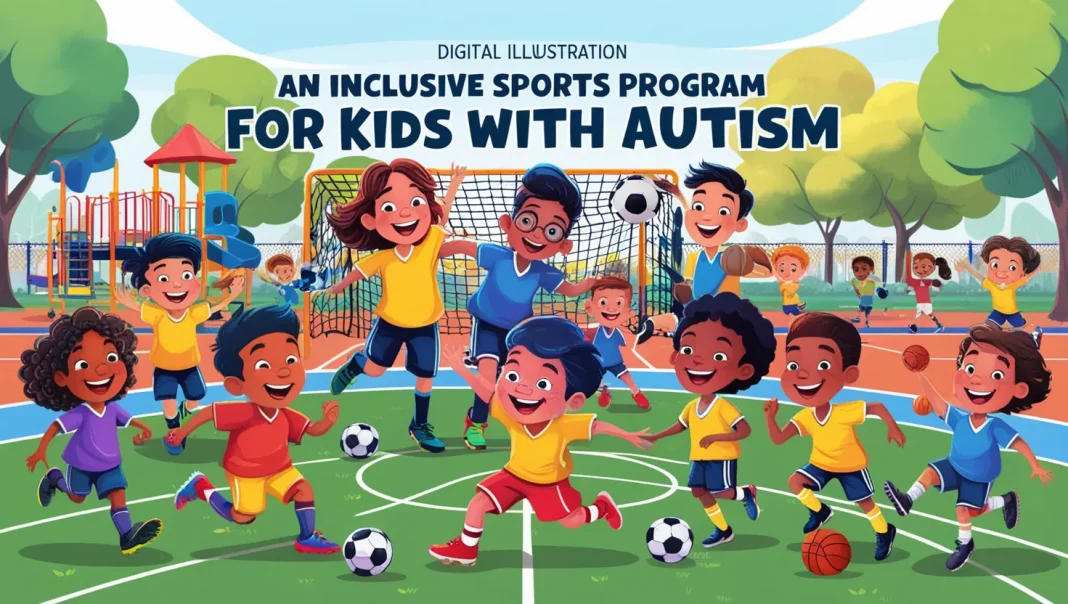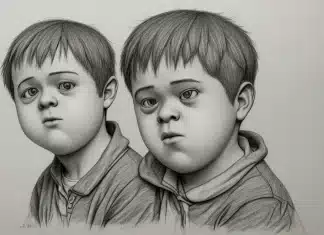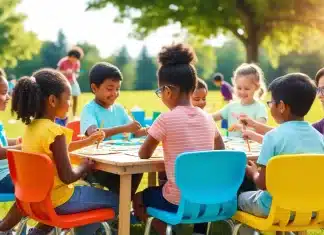Kids Autism Inclusive Sports Programs
Inclusive sports programs for kids with autism can be a game-changer. Think about how a little encouragement on the field can turn into lifelong skills off it. These programs go beyond just play; they foster confidence, social bonds, and physical health in a way that’s tailored to every child’s unique needs. Curious about how it all works? Let’s dive in!
Understanding Autism in Kids
Autism spectrum disorder (ASD) is a neurodevelopmental condition that affects communication, behavior, and interaction. Each child with autism is unique, with their own strengths and challenges. Some may find it tough to make friends, while others excel in specific skills like memory or problem-solving.
Common Challenges Faced by Kids with Autism
Kids with autism often deal with social struggles, like understanding unspoken rules in a game, or physical challenges, such as poor coordination. Sensory issues, like sensitivity to noise, can also make group activities overwhelming. These hurdles can make traditional sports feel unwelcoming.
Why Inclusion Matters
Imagine being left out of a group photo—it stings, right? Inclusion is about ensuring every child feels valued and part of the team. For kids with autism, inclusive environments help break down barriers, promote understanding, and build a sense of belonging.
The Role of Sports in Child Development
Sports aren’t just fun—they’re foundational for growth. They teach kids how to navigate both the playing field and life itself. From improving health to fostering friendships, the benefits are endless.
Physical Benefits of Sports
Regular exercise helps kids build strength, improve balance, and maintain a healthy weight. For children with autism, these physical activities can also address low muscle tone and coordination issues.
Emotional and Social Benefits of Sports
Sports are a playground for life lessons. They teach teamwork, patience, and resilience. Kids learn to communicate effectively, boost their confidence, and develop a sense of achievement.
What Are Inclusive Sports Programs?
Inclusive sports programs are designed to welcome everyone, regardless of ability. These programs adapt to individual needs, ensuring every child can participate without feeling overwhelmed or left out.
Key Features of Inclusive Sports Programs
These programs are structured, supportive, and flexible. Coaches are trained to understand autism, and activities are modified to suit varying abilities. The goal? To create a fun, safe, and engaging environment.
Examples of Inclusive Sports Programs
From adaptive soccer leagues to therapeutic swimming and gymnastics classes, there’s something for every interest. These programs often pair kids with buddies or mentors to provide additional support.
Benefits of Inclusive Sports for Kids with Autism
Inclusive sports offer tailored benefits that go beyond the physical. They’re a powerful tool for personal growth and development.
Encouraging Social Interaction
Sports create natural opportunities for kids to interact, make friends, and learn social cues in a fun setting.
Building Self-Esteem
Achieving even small milestones—like scoring a goal or completing a lap—can be a huge confidence booster for kids with autism.
Developing Motor Skills
Activities like kicking a ball or swimming laps improve coordination, agility, and overall motor skills.
Tips for Parents and Coaches
Want to ensure success? It takes teamwork between parents, coaches, and kids.
Finding the Right Program
Look for programs that align with your child’s interests and offer accommodations like sensory-friendly settings or smaller group sizes.
Supporting Kids During Participation
Encourage your child to try their best without pressure. Celebrate small victories and provide comfort when things get tough.
Collaborating with Coaches
Communication is key. Share insights about your child’s strengths and needs to help coaches create a positive experience.
How Communities Can Support Inclusive Sports Programs
Inclusive sports thrive on community involvement. Here’s how neighborhoods can make a difference.
Raising Awareness
Host workshops, share success stories, and create campaigns to spread the word about the importance of inclusion.
Providing Resources
Ensure access to adaptive equipment, funding for programs, and spaces for activities. Every bit of support counts.
Conclusion
Inclusive sports programs for kids with autism are a win for everyone. They provide a platform for growth, connection, and joy. By creating supportive environments, we can ensure every child has the chance to shine—on and off the field.
FAQs
Q1: What are the best sports for kids with autism? * Sports like swimming, martial arts, and track focus on individual progress and are often less overwhelming.
Q2: How do I find inclusive sports programs near me? * Check local community centers, autism organizations, or online directories for options.
Q3: Are coaches trained to work with autistic children? * Many inclusive programs offer specialized training for coaches to ensure they understand and accommodate the needs of kids with autism.
Q4: How can I help my child enjoy sports? * Focus on fun, celebrate small achievements, and choose activities aligned with their interests.
Q5: Why are inclusive sports important for autism awareness? * They promote understanding, break down stereotypes, and highlight the abilities of kids with autism in a positive light.




























